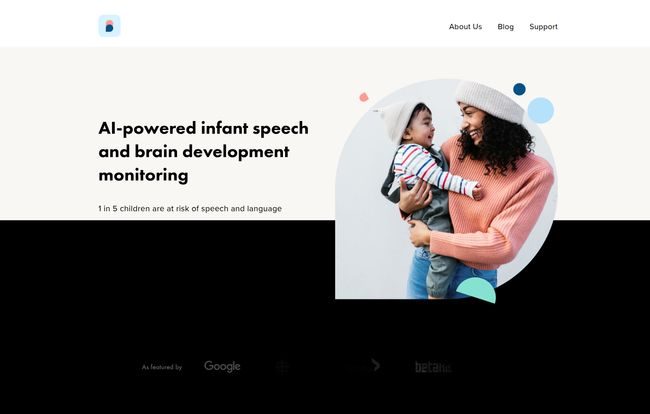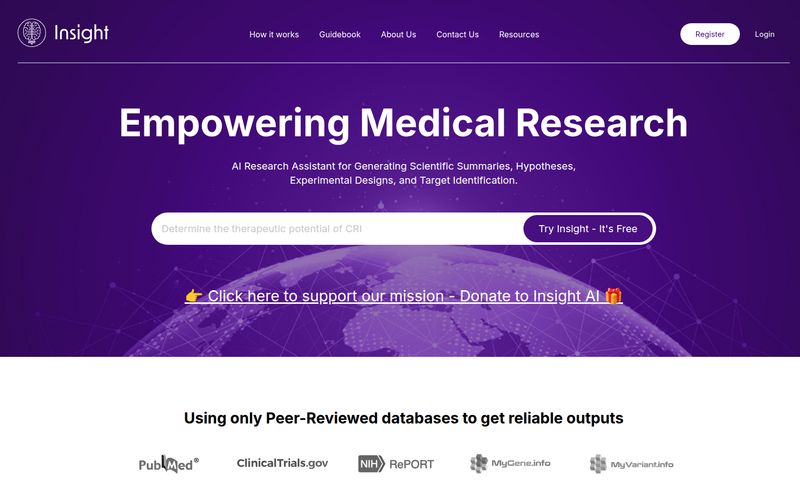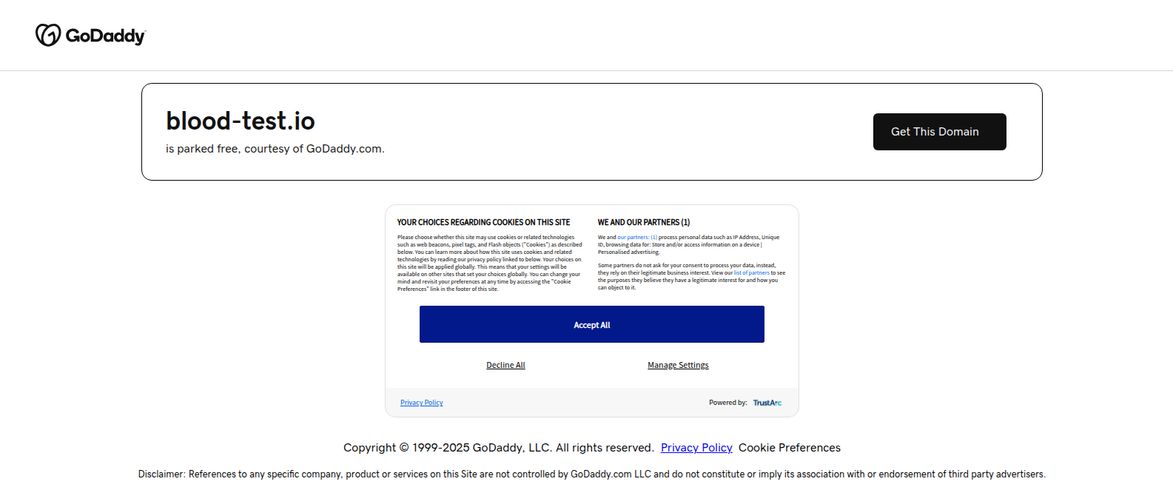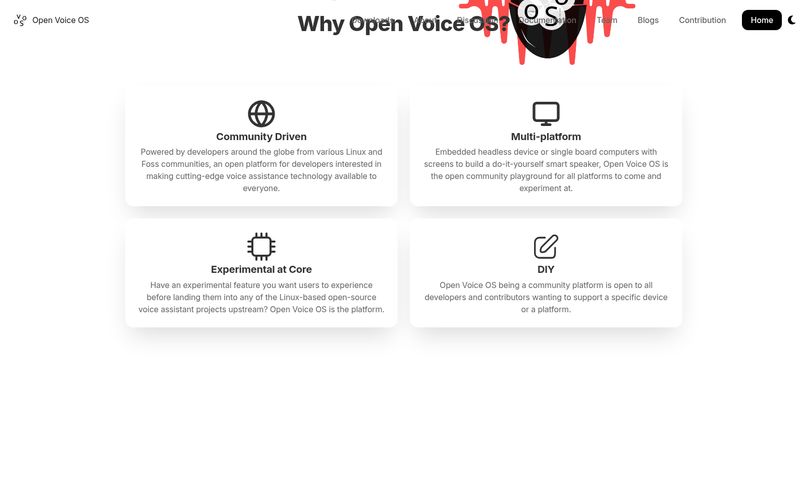There's a specific kind of quiet anxiety that settles in during those late-night feedings. The house is still, the world is asleep, and you're just staring at this tiny human you made, wondering… are you okay in there? Are you hitting your marks? We track their sleep, their eating, their poops (oh, the poop tracking). So it's only natural we obsess over their first words.
For generations, the approach to a baby’s speech development has been a frustrating game of “wait and see.” You mention a concern to your pediatrician, and the common refrain is often, “Let’s give it a few more months. They all develop at their own pace.” And while that's true, it doesn’t do much to calm a worried parent's mind, especially when you read that 1 in 5 children are at risk of a speech or language delay.
Into this void of worry and waiting steps a new wave of technology. Enter Babbly, a platform that claims to use AI to monitor your infant's speech and brain development. It sounds like something straight out of science fiction, right? But I’ve been in the SEO and trends space long enough to know that today’s sci-fi is tomorrow's standard parenting gadget. So, I had to take a look.
So, What Exactly is Babbly?
At its core, Babbly is an early-detection tool. Think of it less as a translator for your baby’s gurgles and more like a highly specialized sound engineer for their vocal development. It's designed to analyze the acoustic features of your baby’s voice—the rhythm, the pitch, the patterns—to flag potential developmental delays as early as 9 months. It’s not just listening for a “dada,” but for the complex pre-linguistic sounds that build up to it.
The company, which has been featured by giants like Google and Telus, says it turns playtime into progress. You provide the content—clips of your baby babbling away—and its AI provides the analysis, comparing your child's progress against a massive dataset. It’s a fascinating concept: taking something as subjective as parental intuition and backing it up with cold, hard data.

Visit Babbly
How Babbly Aims to Change the Parenting Game
From what I've gathered on their site, Babbly's approach is threefold, and it’s pretty smart. It’s not just about pointing out a problem; it’s about offering a path forward.
Turning Babbles into Actionable Data
We all think our baby is a genius. I know I did. But intuition can sometimes be clouded by love (or sleep deprivation). Babbly's main draw is providing objective feedback. It analyzes your recordings and gives you insights into your child’s language progression. This data could be an incredibly powerful tool to bring to your next pediatrician appointment. Instead of saying, “I’m just… worried,” you can say, “I’ve been tracking their vocalizations, and the data shows a plateau. What do you think?” That changes the conversation entirely.
Personalized Playtime with a Purpose
This, for me, is the most compelling feature. Getting a red flag without any guidance on what to do next is just… cruel. Babbly claims to provide personalized activity recommendations to help accelerate your child’s development. It’s one thing to know there might be an issue; it’s another to be given simple, daily activities that can help. It turns a moment of panic into a moment of proactive care. It’s the difference between a smoke alarm and a fire extinguisher.
Answering the Big Question: Is My Child at Risk?
Let's be blunt. The fear behind speech delays is often tied to bigger concerns, like autism spectrum disorder. Babbly positions itself as a tool to help identify that risk early. And early intervention is, by all accounts, the single most impactful factor in a child's long-term outcome. The testimonials on their site, from both parents and pediatricians, speak to this power. A pediatrician, Dr. Parikh, is quoted as saying, “Babbly is a must-have for parents who want to track their child’s cognitive, language and social skills.” That’s a pretty strong endorsement.
The Big Questions and My Honest Take
Alright, let’s get real. As a tech analyst and just a generally skeptical human, I see a few hurdles and questions that immediately pop into my head. The idea is brilliant, but execution is everything.
The Elephant in the Room: Privacy and AI
You’re uploading audio, and possibly video, of your child to a company’s server. In 2024, that should give anyone pause. What are their data retention policies? How is the data anonymized? Who has access to it? These are not small questions. Before I’d ever upload a clip of my own kid, I would need to read their privacy policy with a fine-tooth comb. Any company dealing with data this sensitive owes its users absolute transparency. Period.
Can This Create More Anxiety?
I can also see the flip side of this coin. For some parents, this kind of data tracking could be a source of immense anxiety. What if the app shows your child is behind? What if you become obsessed with the daily score, turning beautiful, spontaneous moments of play into high-pressure recording sessions? It’s a valid concern. Technology can be a wonderful servant but a terrible master. I think its helpfulness really depends on your personality. If you're someone calmed by data and action plans, it could be a godsend. If you're prone to obsessive worry, it might just be a new thing to worry about.
The Pricing Mystery
This is a pet peeve of mine. I went looking for a pricing page on their site, and… nothing. A quick click on some of their footer links even led to a 404 error page. Look, I get it. Startups are often in flux, and sometimes the strategy is to get you into a sales funnel before showing you a price. But as a consumer, I find it frustrating. I want to know if this is a $10/month subscription or a $200 one-time purchase. The lack of transparent pricing is a bit of a red flag and something I hope they fix soon.
So, Is Babbly a Must-Have for New Parents?
So, what’s teh verdict? Babbly is not a replacement for a pediatrician or a speech-language pathologist. Let’s get that straight. It’s an informational tool, a data-gatherer. And it could be an incredibly powerful one.
Think about parents in rural areas with long waitlists for specialists. Or a parent who feels dismissed by their doctor but whose gut tells them something is off. In these cases, having concrete data and tailored activities could be truly transformative. It can empower you to advocate more effectively for your child.
However, the privacy questions loom large, and the potential for it to increase anxiety is real. And without knowing the cost, it’s hard to truly assess its value. My feeling is this: Babbly represents an exciting and probably inevitable direction for parenting tech. It’s for the data-driven parent who wants one more tool in their arsenal. It's for the parent who wants to be proactive. If that's you, it's certainly worth keeping an eye on.
Frequently Asked Questions about Babbly
- 1. What is Babbly and how does it work?
- Babbly is an AI-powered platform designed to monitor an infant's speech development. Parents upload audio or video clips of their baby, and the AI analyzes the vocalizations to track progress and identify potential risks of speech and language delays.
- 2. Is Babbly safe to use for my child?
- This is a critical question. Using the app involves uploading recordings of your child, which raises valid privacy concerns. It's essential to thoroughly review Babbly's privacy policy and terms of service to understand how your data is stored, used, and protected before you begin.
- 3. Can Babbly diagnose a speech delay or autism?
- No. Babbly is a screening and monitoring tool, not a diagnostic tool. It can identify if a child is at risk for a delay, but it cannot provide a medical diagnosis. That must be done by a qualified professional, like a pediatrician or a speech-language pathologist.
- 4. Who should consider using Babbly?
- Babbly could be useful for any parent curious about their child's development, but especially for those who have a specific concern, feel their intuition is telling them something is off, or face long wait times for specialist appointments. It provides data to support conversations with doctors.
- 5. How much does Babbly cost?
- As of this writing, pricing information is not publicly available on the Babbly website. You may need to sign up or contact the company directly to get details on subscription costs or fees.
- 6. Is Babbly endorsed by medical professionals?
- The Babbly website features an endorsement from at least one pediatrician, suggesting it has gained some traction within the medical community as a supplemental tool for parents.
Final Thoughts
The journey of parenthood is full of unknowns. Tools like Babbly are trying to light up one small, but significant, corner of that map. While it’s not a magic eight ball that can tell you your child's future, it is an innovative attempt to give parents more information and more agency, sooner. And in those quiet, anxious moments, having a plan and a bit of data can make all the difference. Whatever you choose, trusting your gut and building a strong relationship with your pediatrician remains the best strategy. Tech is just here to help you start the conversation.
References and Sources
- The official Babbly website: babbly.co
- CDC's Child Development Milestones: CDC.gov
- Information on Speech and Language Disorders from ASHA: American Speech-Language-Hearing Association



